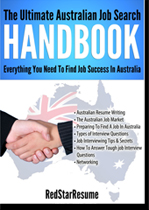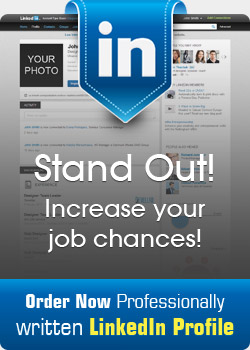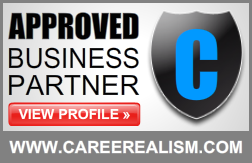 I recently worked with a client who had a 13 page resume! It included every single job for the past 25 years and a full page describing what he was looking for in his next role. The resume even included icons and pictures of the places of employment where he had worked. The document was so large to open that I was scared it contained a virus (no jokes!). He had applied unsuccessfully for numerous jobs before deciding it was time to call upon a resume writing company to analyse his resume.
I recently worked with a client who had a 13 page resume! It included every single job for the past 25 years and a full page describing what he was looking for in his next role. The resume even included icons and pictures of the places of employment where he had worked. The document was so large to open that I was scared it contained a virus (no jokes!). He had applied unsuccessfully for numerous jobs before deciding it was time to call upon a resume writing company to analyse his resume.
Knowing what to include in your resume is just as important as knowing what to exclude. Don’t waste time with information that does not add value. Hiring managers and recruiters don’t have time to read through every resume with a fine tooth comb.
Below are 5 things that need to be excluded from your resume:
The word “Resume” or “Curriculum Vitae” or “CV” at the top of the resume:
When a hiring manager or recruiter first opens your resume what is the first thing they see? Is it your name or is it a big bold heading that says “Resume”? When you are applying for a job it goes without saying that you are including your resume… do you really have to spell it out for them? Not only does writing “Resume” at the top take up valuable real estate space on your resume, but it also adds no value to your application.
Objective Statement:
Does your resume have a generic objective statement where you tell the reader what you are looking for in a job? Something similar to “Looking to utilise my skills to gain additional skills and experience”? If your resume reads like this do yourself a favour and delete it immediately. Hiring managers want to know that you your resume is written to target their jobs and that you have the skills and experience for that particular role. Stand out from the crowd by replacing your objective statement with a qualifications profile and highlight to the reader what you have to offer their organisation.
Too much contact information:
How much personal contact information is required in your resume? My advice is to include your name, email address and mobile number. If you have a LinkedIn profile URL I would include this as well. All other personal information such as date of birth, marriage status, number of kids, religion, race, country of birth, passport details etc. are not required on the resume.
Interest and Hobbies:
Unless it can add value to your job application there is no need to include your interest and hobbies within your resume. The fact that you like going on long walks, reading autobiographies and travelling to exotic places will not enhance your resume. Your resume needs to target the job you are applying for and although you may have a long list of extra-curricular activities you like to pursue this list does not belong on your resume.
References:
Your personal and business references do not belong on the resume unless specifically asked. References are typically checked after you apply for the job and are interviewed, and these are supplied to hiring managers on request. There is no need to flood your resume with references. They take up valuable space in your resume and 99/100 times will not even be looked at by the hiring manager. Ensure you have a list of references ready to go, but keep these ready for after you nail the job interview.
© RedStarResume Publications – http://www.bestresponseresume.com/
Specializing in Executive Resume Writing















